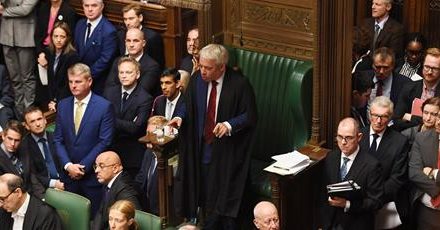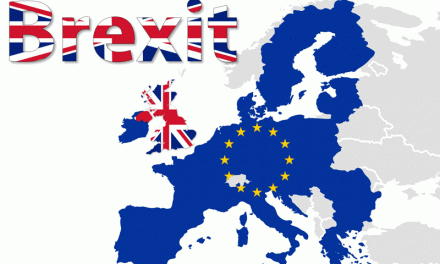On January 31, we launched the European Foundation pamphlet Completing Brexit, celebrating the third anniversary of our leaving the EU and the thirtieth anniversary of the founding of the Foundation, of which Margaret Thatcher was patron.
All the pamphlets and original analysis we have produced – such as the January 2001 edition of the European Journal, warning of the dangers of European reliance on Russian energy – can be found on our website.
Past directors include Allister Heath, Editor of the Sunday Telegraph, Dr Radomir Tylecote, and Dr Jim McConalogue, Director of Civitas. Matthew Elliott of the Taxpayers’ Alliance and William Sitwell were also on the team.
I founded the European Foundation in 1993 as part of the Maastricht Rebellion. With help from brilliant volunteers, including Daniel Hannan and Conor Burns, we tabled hundreds of amendments in the Commons, supplying MPs with briefings on resisting European government and the Treaty. This continued throughout the debates on the treaties of Nice, Amsterdam and Lisbon.
Lord McAlpine lent us his home in Great College Street as Margaret Thatcher moved out, and as it became the focal point of the rebellion there was a constant stream of ambassadors, journalists, and other visitors, much to John Major’s displeasure.
We held seminars and parties with huge so-called Maastricht pies, made by a butcher in my constituency. All this was continuously reported on, with one article calling Great College Street Major’s “House of Horror”!
We raised a national petition for the Maastricht Referendum Campaign, with advertisements in, and donated by, national newspapers including the Sun, including a petition which the public could sign. This was then delivered to the Commons.
The objective was protecting the UK’s sovereignty. Sovereignty is the right of a nation to govern itself through its own laws made by its own democratically-elected representatives. This was abandoned when we joined the European Community.
Despite its central role in the ongoing row over Northern Ireland, many still do not understand the undemocratic nature of the EU law-making process. EU laws are passed behind closed doors by majority vote of the Council of Ministers, without a transcript.
Before the European Communities Act 1972, passed by a handful of votes, the White Paper “guaranteed” retaining the veto “in our vital national interest”. However, not one EU law was ever rejected by our Parliament during our membership; a graphic example is that all 43 ports employers, trades unions, and the Government strongly opposed the Ports Regulation, to no avail.
Remainers embedded in the Civil Service, Diplomatic Service, the Lords, BBC, and other parts of the media must know that we entered the Community on false premises.
Sir Con O’Neill’s report to the then-Foreign Secretary on the outcome of the negotiations in 1972 is recorded in the Kew archives. He stated that negotiations were “peripheral, accidental and secondary… what mattered was to get into the Community… we had to get in”.
On whether we got a good bargain, he said “I am on the whole rather complacent”, later admitting he “failed to grasp” the fundamental “political objectives in mind”, adding: “I am sorry to say we probably also thought that it was not fundamentally important”.
This state of affairs is what the remainers are now defending, in defiance of the referendum and the 2019 election result.
The British people will never again subject themselves to government by 27 EU countries. Indeed, there is now growing demand for greater national autonomy from Member States such as Italy and Poland.
The European Foundation established its reputation to reinforce this; Thatcher asserted that our work “researching and publishing information about European issues is vital both to the Conservative Party and the country”.
We compiled a series of referendum bills and gradually persuaded MPs to put this choice to the voters through a sovereign Act of Parliament. This was necessary to bypass the collusion between the Government and Opposition front benches to stay in Europe at any cost.
The Maastricht Rebellion inspired the Spartans, who in defeating Theresa May’s Third Withdrawal Agreement forced her resignation. Boris Johnson went on to secure a massive majority with a promise to deliver the referendum result.
There remains unfinished business. Both Johnson and Rishi Sunak deserve credit for the passage in the Commons, without amendment, of the Northern Ireland Protocol Bill and the Retained EU Law Bill. But these Bills, now in the Lords, are under attack by Remainers; using the Parliament Acts to override Lords amendments is imperative.
We now control our own statute book and our democracy. Take the Online Safety Bill. Had we not left the EU, we would have had to adopt their Digital Services Act, which is totally inadequate.
Miriam Cates and I tabled an amendment to the Online Safety Bill, which the Government, in principle, has accepted. It will provide vital protection for our children from online harm, imposing, above all, imprisonment for tech bosses knowingly flouting the new legislation. MPs could not do this with European legislation.
Our vaccine rollout was world-leading, and saved so many lives, but was delivered only because we were not subject to EU law. Brussels even passed a regulation to prohibit the release of these vaccines.
A House of Lords Committee recently admitted, contrary to the falsehoods of the Remain campaign, that “London has retained its position as the world’s second largest (or most important) financial centre and the most important in Europe”.
The European Foundation will continue to make clear that the rise in the cost of living is emphatically not the fault of the Government nor Brexit, but external global factors, such as the pandemic and Vladimir Putin’s war on Ukraine.
Yet that the Conservative Party has passed vital legislation, and made real progress on achieving Brexit, is because of its massive parliamentary majority. Without it, little could have been achieved – and much could yet be undone.
Parties such as Reform will win no seats at the next election. All they will do is undermine the Conservative Party – and thus Brexit – by splitting the vote and letting Labour into office.


